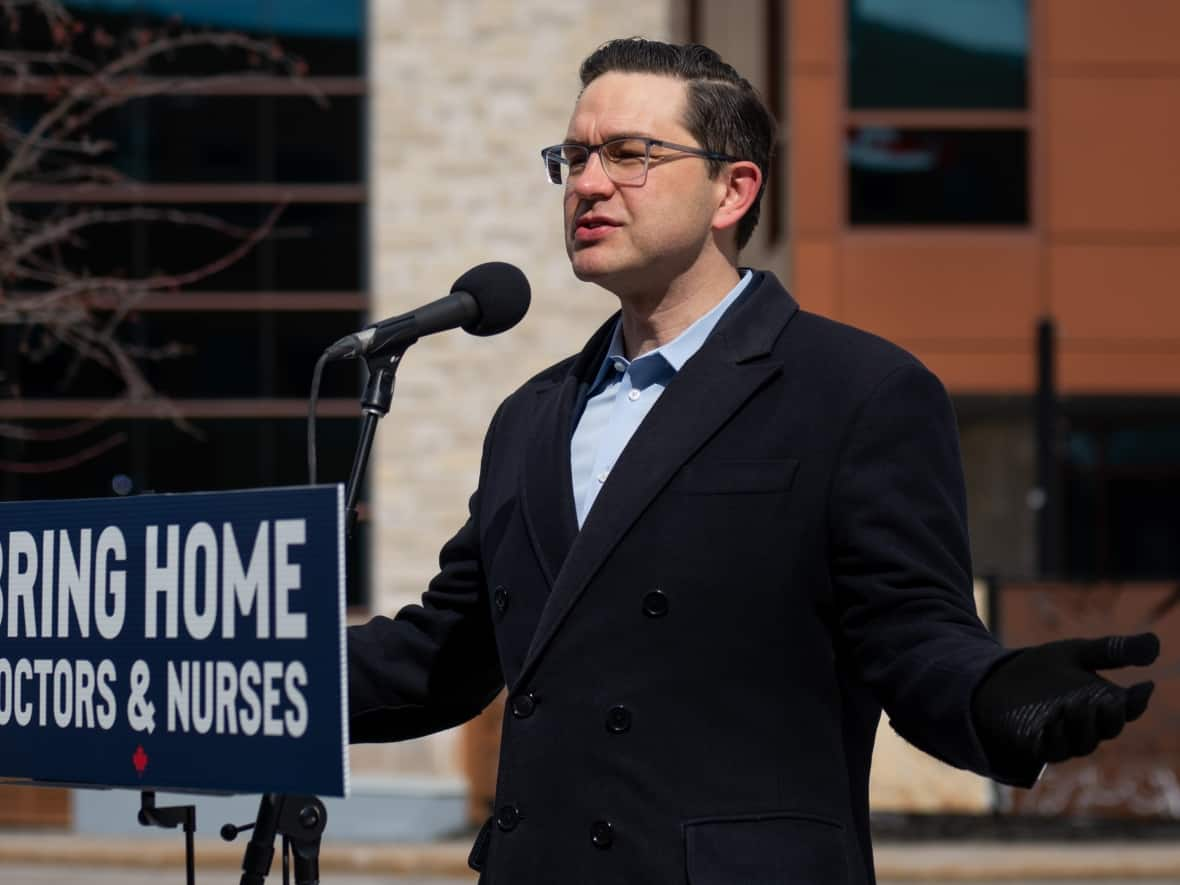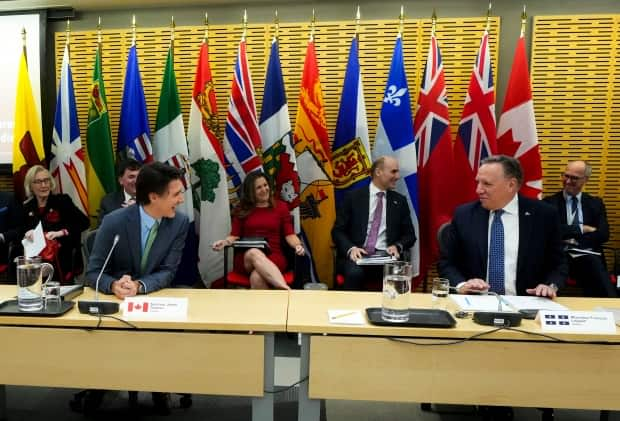Poilievre calls for changes to allow doctors, nurses to work across Canada

Conservative Leader Pierre Poilievre called Sunday for the development of a national standards system that would allow qualified doctors and nurses to work in any province or territory in the country.
Poilievre proposed what he called a "Blue Seal" standard, modelled after the Red Seal program used in the skilled trades. The standard would apply to the national competency test for a worker's profession, and if health-care workers pass the test, they would be quickly licensed and able to work anywhere that adopts the new standard.
The system would help reduce personnel shortages plaguing the health-care system and allow Canadian health-care workers to stay in the country, rather than moving abroad, Poilievre said. It would also make it easier for foreign-trained doctors and nurses to get jobs in Canada, he said.
"It's common sense, if you can do the job, you can get the job," he said Sunday.
"It's time to bring home the best health care in the world to Canada, it's time to bring home our doctors and nurses," Poilievre continued.
The lack of mobility for doctors has been flagged by the Canadian Medical Association (CMA) as an important problem in Canada's health-care system, noting that in most cases, trying to move between provinces means "a lengthy application process, sometimes months-long, and thousands of dollars in fees."
Around one in five Canadians don't have a family doctor, survey data published by the Angus Reid Institute suggests.
The CMA has advocated for what it calls pan-Canadian licensure, arguing it has broad support among its members and would create a more efficient and flexible system.

"We need to rethink the idea that we can carry on with 13 separate health systems that don't collaborate with each other at a really deep level," said CMA president Dr. Alika Lafontaine last year.
The organization is also supportive of changes that would allow more Canadian doctors now working abroad to return home, but argued that the system required wholesale reform, "rather than bringing more workers into a system that is in need of significant repair and is likely to wear them out along with their Canadian-trained colleagues."
Provinces loosening restrictions
Provinces have moved independently to ease cross-border restrictions. B.C. put in place a similar policy in January, and Ontario is moving ahead on also allowing doctors from other provinces to work more easily. Atlantic provinces, meanwhile, decided recently they will create a new registry of doctors who are interested in working across the region.
"What we're talking about is making it easier for them to pitch in where it's necessary in other provinces," Nova Scotia Premier Tim Houston said in February.
Nova Scotia has also decided it will accept U.S. board certifications for doctors, meaning they won't have to undergo additional certification when they look to work in the province. And it's announced a similar process for nurses both in and outside of Canada.
The NDP also expressed support for pan-Canadian licensing last year.
The federal government recently concluded a series of bilateral deals with provinces — along with a general increase in the Canada Health Transfer over the next few years — which also included calls for better data sharing and reporting between provinces and the federal government.
The government has looked to push provinces in the direction of a national recognition of credentials, making it part of their health-care proposal in February along with commitments to ease the way for foreign-trained workers.
"We'll be asking provinces and territories to recognize credentials Canada wide, so that our well-trained health-care professionals can work wherever there is need," said Prime Minister Justin Trudeau at the time.


